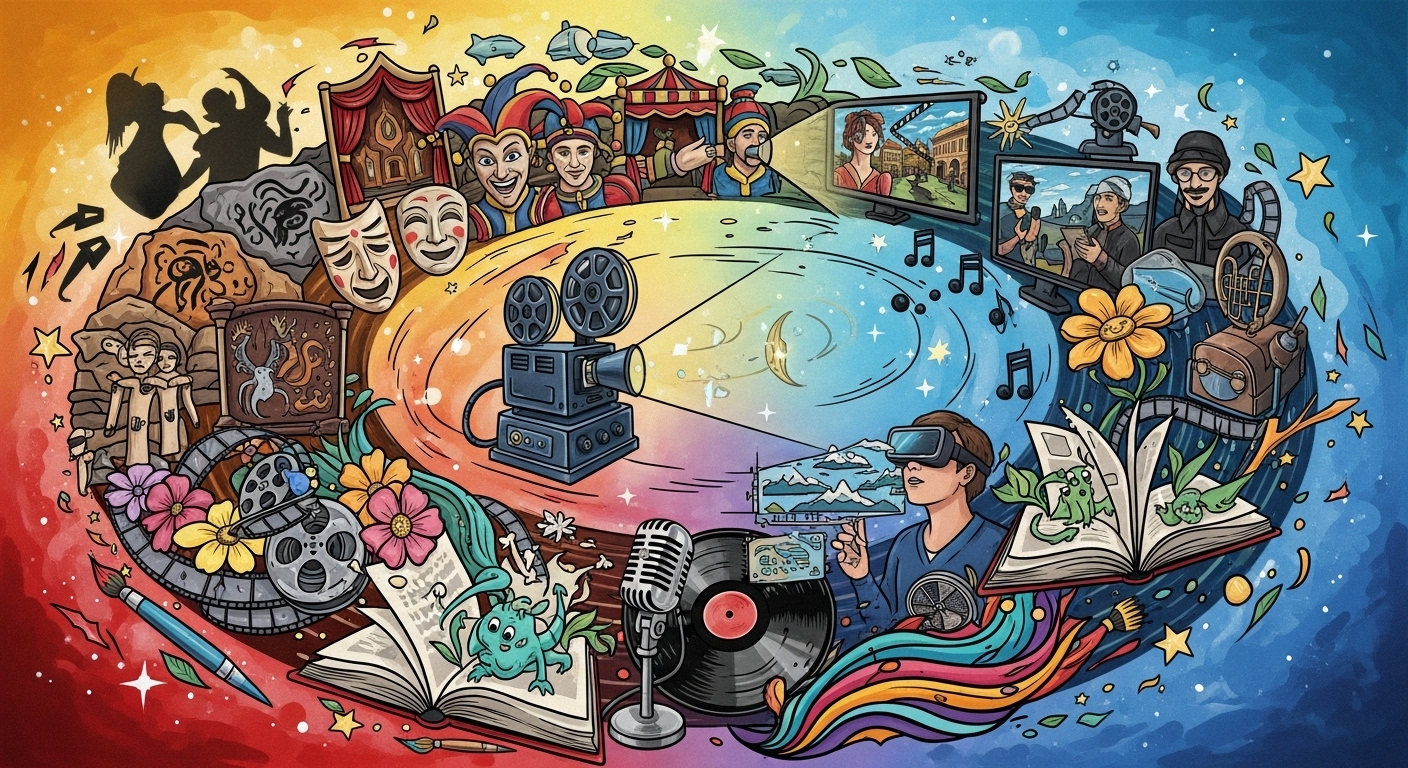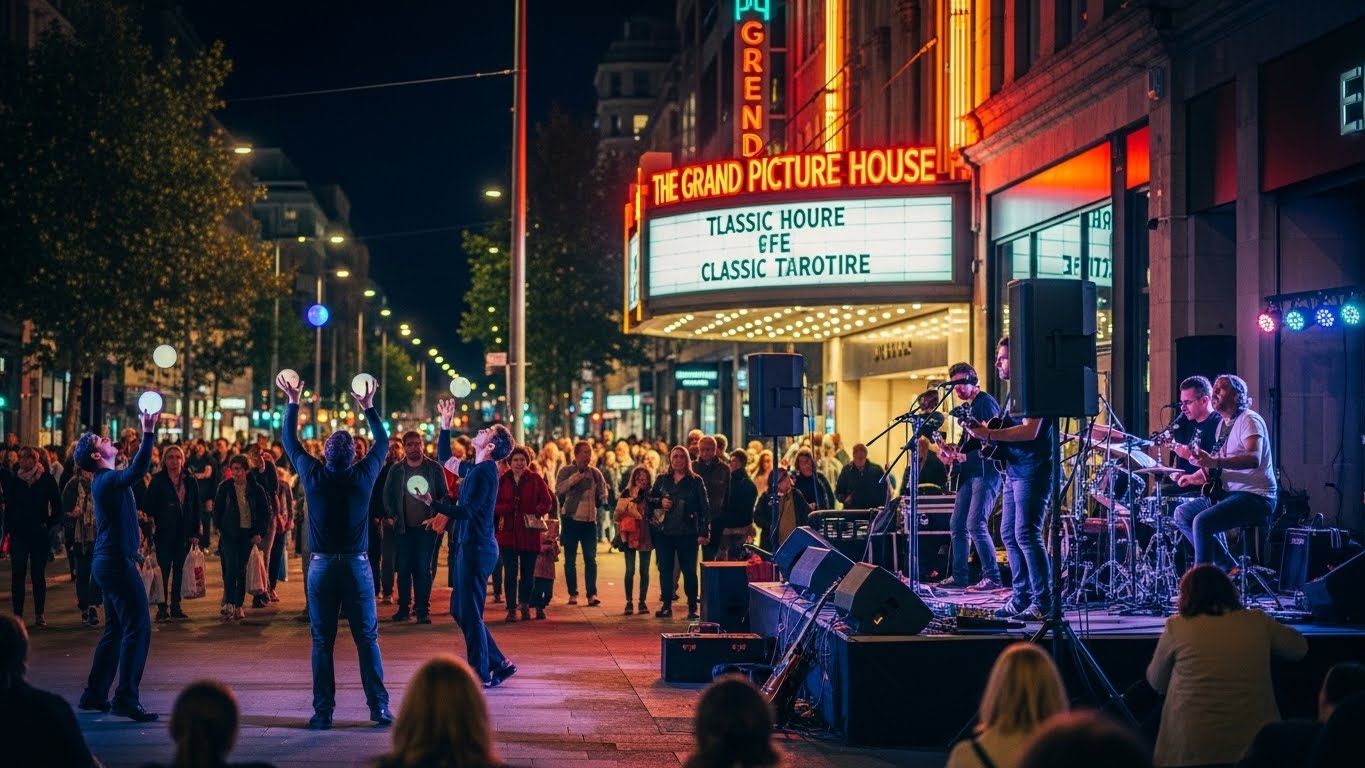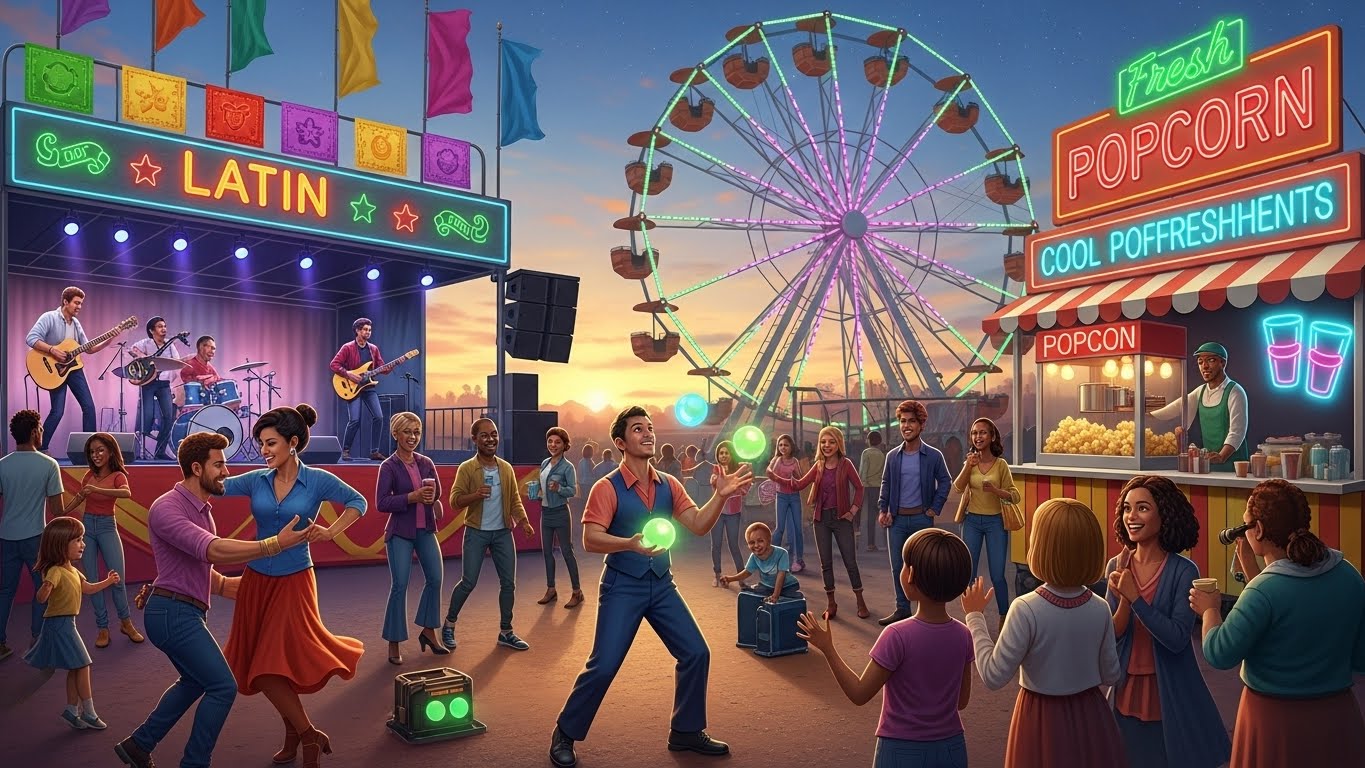Entertainment has always been one of the most fascinating aspects of human life. From ancient forms of storytelling and theater to today’s digital platforms and cinematic universes, entertainment defines how people experience joy, emotion, and connection. It shapes cultures, influences generations, and creates shared memories that last forever. In every age, entertainment has evolved alongside human civilization, reflecting the values, dreams, and creativity of the people who create and consume it.
The Evolution of Entertainment
The concept of entertainment dates back thousands of years. In ancient times, people entertained themselves through songs, dances, and oral storytelling. These activities were not only a source of amusement but also a method to pass down traditions and history. In ancient Greece, theater became one of the earliest structured forms of entertainment, with tragedies and comedies performed for large audiences. Similarly, in ancient Rome, gladiatorial games, races, and dramatic performances attracted crowds in massive arenas.
As centuries passed, entertainment continued to transform. The invention of the printing press allowed books and literature to reach the public, introducing people to new worlds of imagination. The Renaissance period gave rise to visual art and music that entertained and inspired at the same time. When electricity and technology entered the scene, a new chapter began. The 19th and 20th centuries brought radio, cinema, and eventually television, each revolutionizing how people consumed entertainment. Today, we live in a digital era where entertainment is just a tap away, available on smartphones, streaming services, and virtual platforms.
The Magic of Cinema
Cinema is perhaps one of the most powerful forms of entertainment ever created. Movies have the ability to transport audiences into different worlds, tell stories that touch hearts, and evoke emotions ranging from laughter to tears. The birth of cinema in the early 20th century marked the beginning of a new artistic and commercial revolution. Silent films by legends like Charlie Chaplin entertained millions with expressive performances long before spoken dialogue became common.
As technology advanced, color films, sound effects, and visual effects transformed cinema into a magical experience. Hollywood became the global hub of filmmaking, producing stories that reached every corner of the world. Other countries also developed their own unique cinematic traditions. From Bollywood’s musical extravaganzas to European art films and Asian dramas, every region brought its own flavor to the global entertainment industry.
Today, cinema continues to evolve with digital technology, high-definition cameras, and computer-generated imagery. Streaming platforms have changed how films are distributed and watched. The movie theater experience still holds a special charm, but people also enjoy the convenience of watching from home. Despite these changes, the essence of cinema remains the same: storytelling that entertains and connects humanity.
The Power of Music
Music is one of the oldest and most universal forms of entertainment. It has no boundaries of language or culture. A melody can express emotions that words cannot describe. Throughout history, music has accompanied every celebration, ritual, and human emotion. From traditional folk songs to modern pop hits, every genre of music carries its own identity and influence.
In the 20th century, the music industry experienced massive transformation. Jazz, rock and roll, blues, and later hip-hop and electronic music reshaped the world’s soundscape. Artists like Elvis Presley, The Beatles, Michael Jackson, and Madonna became cultural icons whose influence extended far beyond music. Each generation has its own sound that defines its mood and style.
Today, music is more accessible than ever. Digital streaming services allow people to explore artists from around the world. Social media platforms help musicians reach millions instantly. Live concerts and festivals remain one of the most thrilling experiences for fans, creating unforgettable moments of shared joy and energy.
The Rise of Television and Streaming
Television changed the landscape of entertainment forever. When it first appeared in homes during the mid-20th century, families would gather around their TV sets to watch their favorite shows, news, and sports. It became a unifying force that shaped cultures and opinions. Iconic sitcoms, dramas, and reality shows became part of daily life, influencing fashion, language, and behavior.
The next big revolution came with streaming services. They gave viewers the freedom to watch what they want, when they want. The concept of binge-watching series became a global trend. Streaming also gave rise to original content that rivaled traditional television in quality and creativity. This shift not only changed how people watch but also how content is produced and distributed. Today, the competition among streaming platforms is fierce, pushing creators to innovate and deliver exceptional storytelling.
The Digital Era of Entertainment
The internet has completely redefined entertainment. From social media influencers to video game streamers, anyone can now become an entertainer with a smartphone and an internet connection. Platforms like YouTube, TikTok, and Instagram have created a new generation of content creators who entertain millions daily. The boundaries between celebrity and audience have blurred, as interaction happens instantly through comments, likes, and live sessions.
Video games have also grown into one of the largest entertainment industries in the world. What began as simple arcade games has evolved into immersive experiences with lifelike graphics, storytelling, and global multiplayer interaction. Esports, where gamers compete professionally, now attracts audiences as large as traditional sports. This digital entertainment revolution has given rise to new careers, communities, and cultural movements.
The Influence of Entertainment on Society
Entertainment is not just about fun; it reflects and shapes society. Movies, songs, and shows often highlight social issues, challenge stereotypes, and inspire change. Through creative expression, entertainers can bring attention to important topics like equality, environment, and mental health. Many iconic films and songs have influenced political movements and social awareness throughout history.
At the same time, entertainment provides an escape from the stress of everyday life. People watch, listen, or play to relax and recharge. Laughter, drama, and fantasy allow the mind to wander into different worlds, offering comfort and inspiration. In a world full of challenges, entertainment remains one of the most effective forms of emotional healing.
The Role of Celebrities and Influencers
The world of entertainment has given rise to stars whose names are known across the globe. Celebrities are more than just performers; they are trendsetters and role models. Their style, opinions, and actions influence millions of fans. In earlier times, movie stars and singers dominated this space, but now influencers, gamers, and digital creators share the same spotlight.
However, fame also comes with responsibility. With global recognition, public figures are expected to use their platforms wisely. Many celebrities engage in philanthropy, awareness campaigns, and activism, using their influence to create positive change. Yet, the constant attention and pressure can also take a toll on their personal lives. The balance between privacy and public life is one of the major challenges for modern entertainers.
The Business Behind Entertainment
Entertainment is not only an art but also a massive industry. Movies, music, games, and streaming platforms generate billions of dollars each year. Behind every performance or production, there is a network of professionals—writers, directors, producers, technicians, and marketers—who make it possible. The entertainment business involves creativity, strategy, and technology working together to capture audience attention.
Marketing plays a key role in the success of any entertainment product. Trailers, posters, social media campaigns, and fan events build anticipation and engagement. Merchandise, licensing, and brand collaborations expand the reach of entertainment beyond the screen. In today’s competitive world, standing out requires both innovation and authenticity.
The Future of Entertainment
The future of entertainment is more exciting than ever. With the rise of artificial intelligence, virtual reality, and augmented reality, the way people experience entertainment will continue to evolve. Imagine watching a movie where you can walk inside the story or attending a concert with holographic performances. These technologies are already transforming creative possibilities.
The metaverse—a virtual shared space—promises to merge gaming, music, film, and social interaction into one seamless experience. Audiences will no longer just consume entertainment; they will participate in it. Personalized recommendations powered by AI will make content more tailored to individual preferences. At the same time, traditional forms like theater and live performance will continue to hold their charm, reminding people of the power of real human connection.
The Cultural Importance of Entertainment
Entertainment plays a vital role in preserving and promoting culture. Local art forms, folk music, and traditional performances keep heritage alive. When people share their stories through film or music, they share their culture with the world. Global entertainment has become a bridge connecting different societies, fostering understanding and appreciation.
From language to fashion, entertainment continuously influences culture. A single movie or song can introduce new trends or spark conversations that shape collective identity. This cultural exchange is what makes entertainment a unifying force in an increasingly diverse world.
The Emotional Connection
At its heart, entertainment is about emotion. It makes people laugh, cry, dream, and think. A song can remind someone of a special memory; a film can inspire someone to change their life. The emotional connection between creators and audiences is what gives entertainment its timeless power.
Behind every performance, there is passion. Artists dedicate their lives to creating moments that touch the soul. Whether it’s a live concert, a heartfelt scene, or a breathtaking dance performance, these expressions remind us of what it means to be human.
Conclusion: The Endless Journey of Entertainment
Entertainment is a mirror of humanity. It grows with us, reflects our emotions, and evolves with every generation. From ancient storytellers to digital creators, the desire to entertain and be entertained has never faded. It is what brings people together, transcending boundaries of age, language, and culture.
As technology continues to advance, the world of entertainment will keep transforming. But one thing will always remain constant: the joy and wonder it brings. Whether through a melody that moves the heart, a movie that sparks imagination, or a performance that takes our breath away, entertainment continues to be the soul of human experience.
In every laugh, every cheer, and every applause, entertainment reminds us of the beauty of creativity and the power of shared emotion. It is not just a part of life—it is life’s most colorful celebration.



